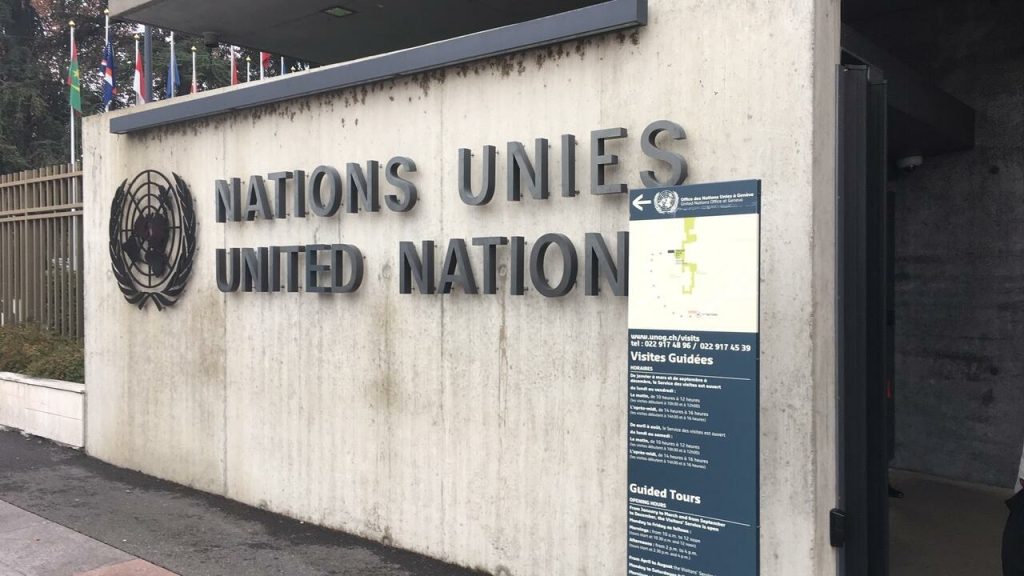Posted in:
So, on Thursday, April 7, 2022, the United Nations General Assembly voted to exclude Russia during an urgent special session on Ukraine. This is the second time that a country has been suspended from the UN Human Rights Council, and the first was, in 2011, the exclusion of Colonel Muammar Gaddafi from Libya. With a vote of 98 to 24 against and 58 abstentions, Moscow’s suspension takes effect immediately. And in these voices, we see very diverse situations emerging on the African continent.
Africa gave the world scattered voices This Thursday in New York. Ten countries voted in favor of suspending Russia’s membership in the Human Rights Council held in Geneva, 24 abstained, nine countries voted against it, and 11 countries did not participate in the vote. First, if you look closely, the “for” was few, given the 54 African member states and 193 countries of the world represented in the United Nations: these are Chad, Cote d’Ivoire, the Democratic Republic of the Congo, Comoros, Libya, but also Liberia, Malawi, Mauritius, Seychelles, and Sierra Leone.
Abstainers were the most numerous, with some heavyweights on the continent such as Cameroon, Egypt, Angola, Kenya, Niger, Senegal, Nigeria, South Africa or even Sudan. Other major countries expanded the list: Madagascar, Ghana, Guinea-Bissau, South Sudan, Togo, Tunisia, Uganda, Tanzania, and finally Botswana, Cape Verde, Eswatini, Gambia, Lesotho, Mozambique, and Namibia.
To read also: Russia was excluded from the United Nations as evidence of massacres accumulated (international press review)
These abstentions are above all cautious positions. Senegal, like Brazil, also expressed itself before the vote, stating that it awaits the conclusions of the specifically established Independent Investigation Commission on Ukraine, headed by the former prosecutor of the International Criminal Court. Fatou Bensouda, by the Human Rights Council. And last time, Dakar announced that its position has also become sensitive due to its tenure at the head of the rotating presidency of the African Union.
In Against, we counted, unsurprisingly, the only African country that actually voted against the Russian invasion, on March 24: Eritrea. But this time, a few of Russia’s allies that abstained, such as the Central African Republic and Mali, as well as Algeria and Burundi, were added. But we also found Ethiopia, also in conflict on human rights issues with the United Nations, Congo, Zimbabwe and finally Gabon, which subsequently moved from the “for” camp to the “opposite” camp.
there “ Strategic coffee break »
Then finally, a large number of African countries did not participate in the vote, which is what Somali analyst Rashid Abdi said, During the vote on March 24ironically, baptized Strategic coffee break » It is a kind of abstention without engaging in the session. There are countries with great political weight, such as Benin, Burkina Faso, Djibouti, Mauritania, Morocco, Guinea, Rwanda or Somalia, as well as Zambia, Equatorial Guinea and Sao Tome and Principe. However, these situations must be understood in the specific context of the United Nations, where voting for or against affirmation, abstention is one thing and no vote is another.
According to the director of the International Crisis Group at the United Nations, Richard Gowan, there are in any case several factors to consider, regarding Thursday’s vote. On the one hand, Russia has warned the member states of the consequences for themselves of this vote, which this time means a real and tangible punishment against Moscow, contrary to the resolution. interpretative From the month of March. Second, this exclusion leads to ” The former is dangerous ” at ” United Nations Administration China also fears, a view shared by countries often questioned by the West regarding their human rights record. He explains that some in the end do not see such repeated condemnations of Russia at the United Nations in a good light and prefer to talk, for example, about food security.
To dispel any misunderstanding about the meaning that should be given to these votes, a diplomat at the United Nations finally wishes to specify that the Human Rights Council has been created.” According to a certain philosophy “: cooperation, not confrontation, as was the case in the previous commission, which was dissolved in 2006 in favor of this new, more collegial body. The danger of this vote, for him, is that it has strongly polarized an institution which, according to him, had the advantage of being” less clogged from the Security Council.
We are not indifferent to the suffering of the Ukrainian people. We, as South Africans, continue to insist that dialogue, mediation and diplomacy are the only way to end this conflict. But when a country is placed on the margins of international institutions, this favors too much, in our opinion, to the risk of promoting the level of impunity. So we are very concerned that the more marginalized a country, the greater the level of anger and attack.
South Africa defends its choice of non-alignment and calls for decisions that favor dialogue

“Total coffee aficionado. Travel buff. Music ninja. Bacon nerd. Beeraholic.”






More Stories
Fluoroscopy | “Self-coup”?
This is why you find it difficult to wake up in the morning.
She meets her boss at the airport after taking sick leave.